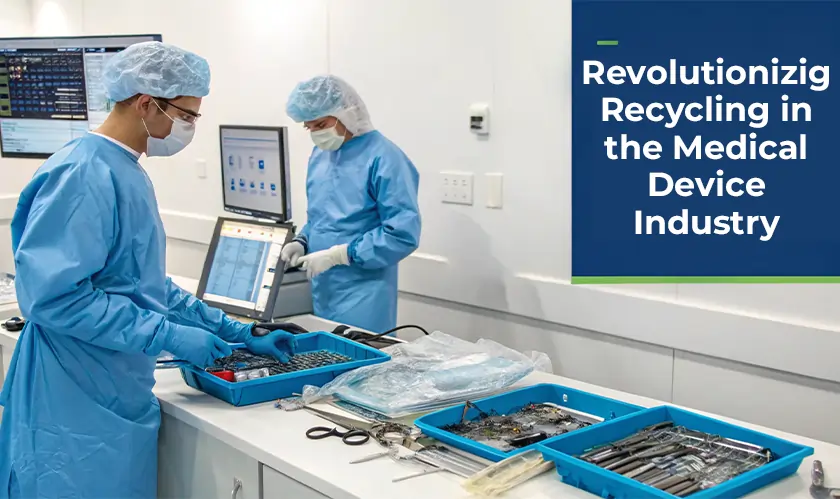Home Technology Medical device Revolutionizing Recycling in t...
Medical Device

CIO Bulletin
24 Febuary, 2025
Medical device plastic recycling encounters contamination issues yet chemical and bio-recycling technologies establish sustainable solutions to these problems.
Hospital reliance on one-time medical devices creates substantial waste from plastics which contributes to mounting pollution issues in the environment. Hospitals throughout the United States generate 33.8 pounds of patient waste daily and plastics account for 20%-25% of this total waste count. The recycling of medical plastics faces barriers that prevent sustainable progress because of contamination problems as well as multiple plastic types found in medical waste streams.
Medical device waste containing blood bags and surgical gloves remains difficult to clean for recycling purposes. Medical device manufacturing requires thorough sorting since various plastic materials have unique characteristics which make recycling efforts more complicated.
Recycling initiatives like chemical recycling and biorecycling give reason to believe in sustainable improvement. Chemical recycling transforms plastics into component parts that can be reused through its breakdown process while biorecycling decomposes plastic waste using microbial action for subsequent reuse. The European VinylPlus project successfully recycles PVC hospital waste which led to lower greenhouse gas emissions.
As a response to this need manufacturers have started creating medical devices with recyclable sustainable materials. Technological advancements in plastic sorting and decontamination and recycling operations will boost medical devices' potential for plastic recycling rates.
The healthcare industry actively searches for innovative solutions to establish a medical plastic waste circular economy model which will ensure sustainable practices in the future.







